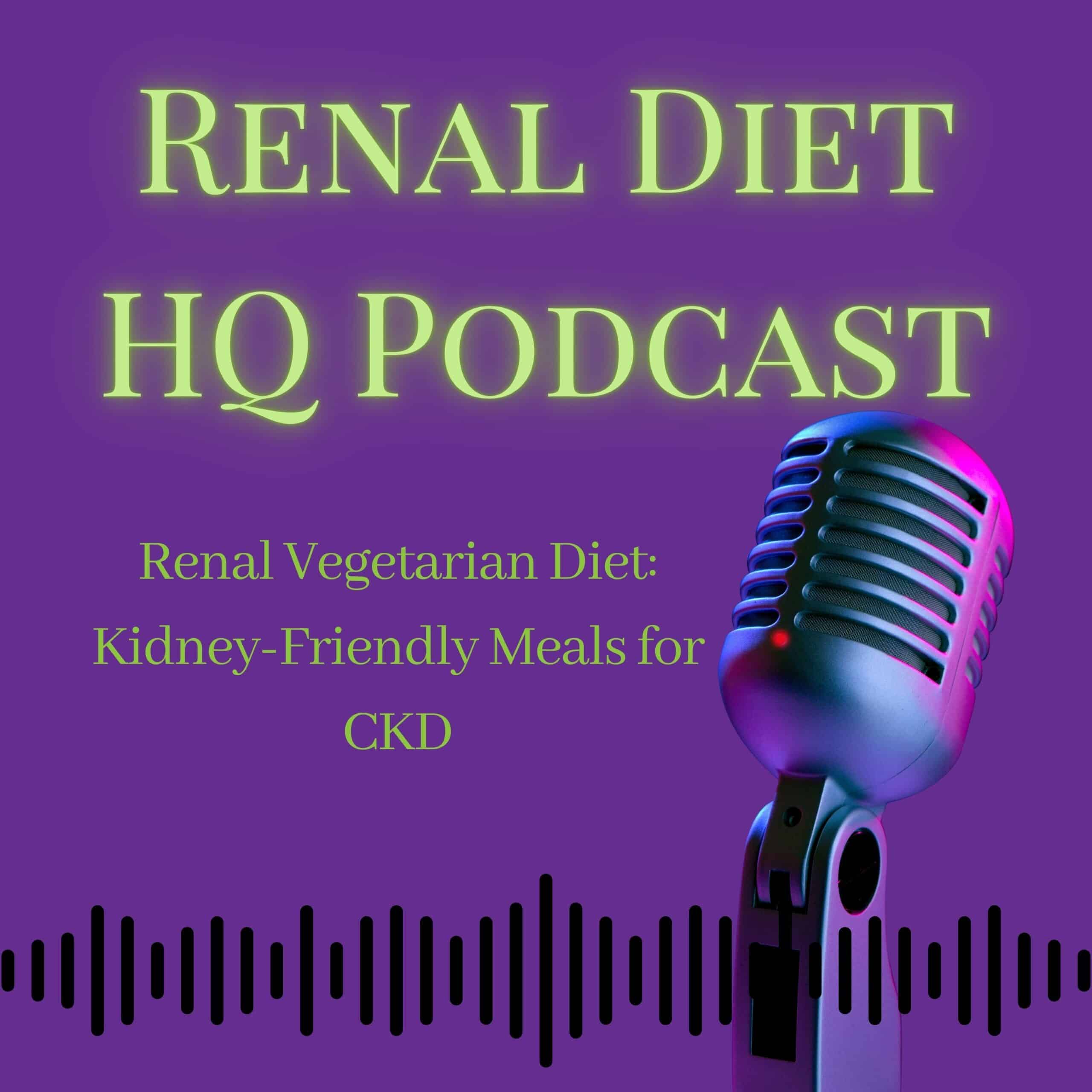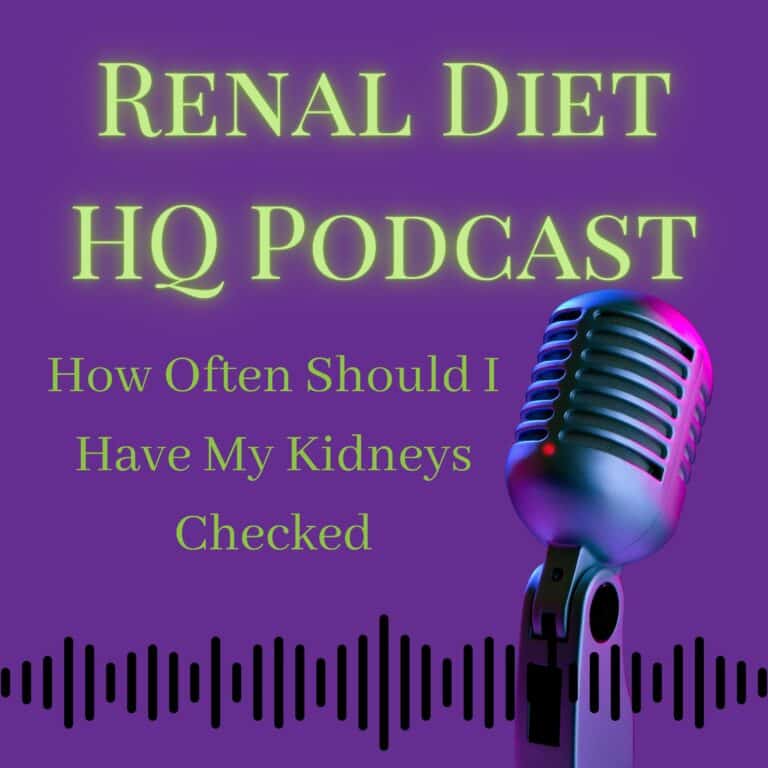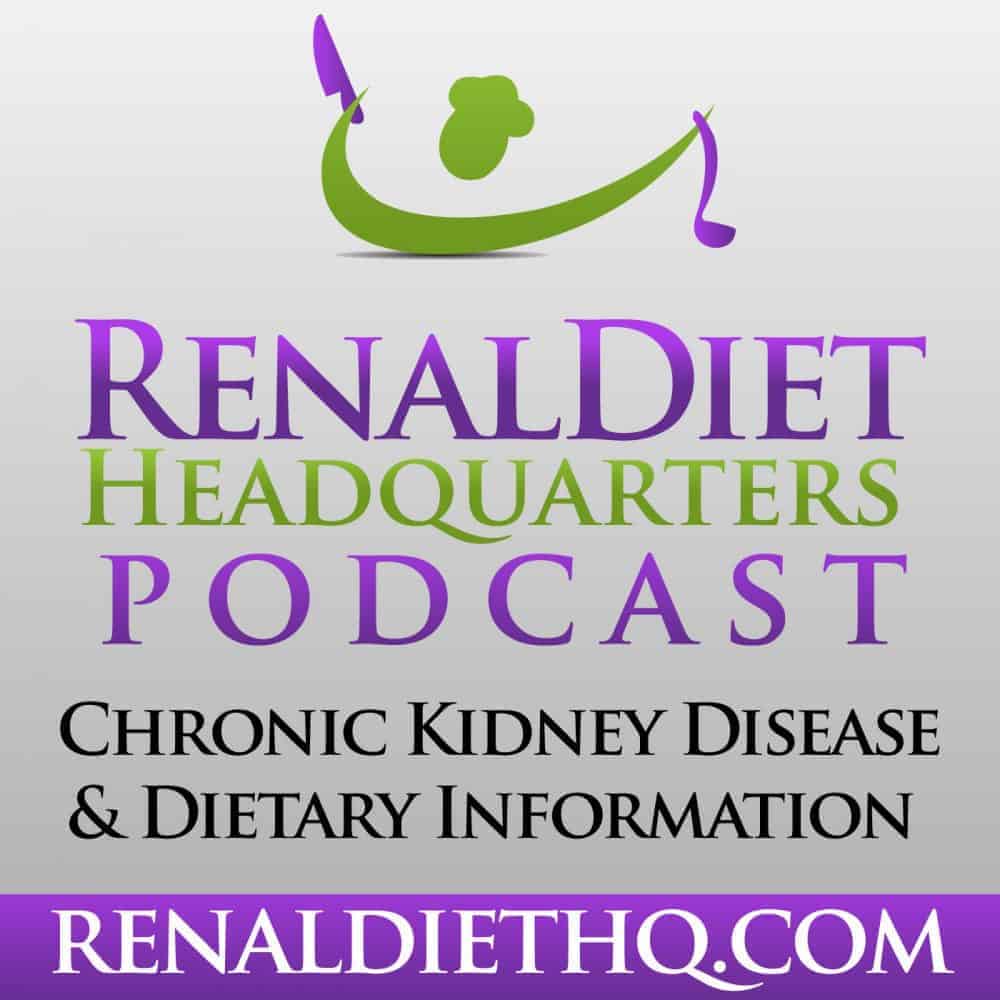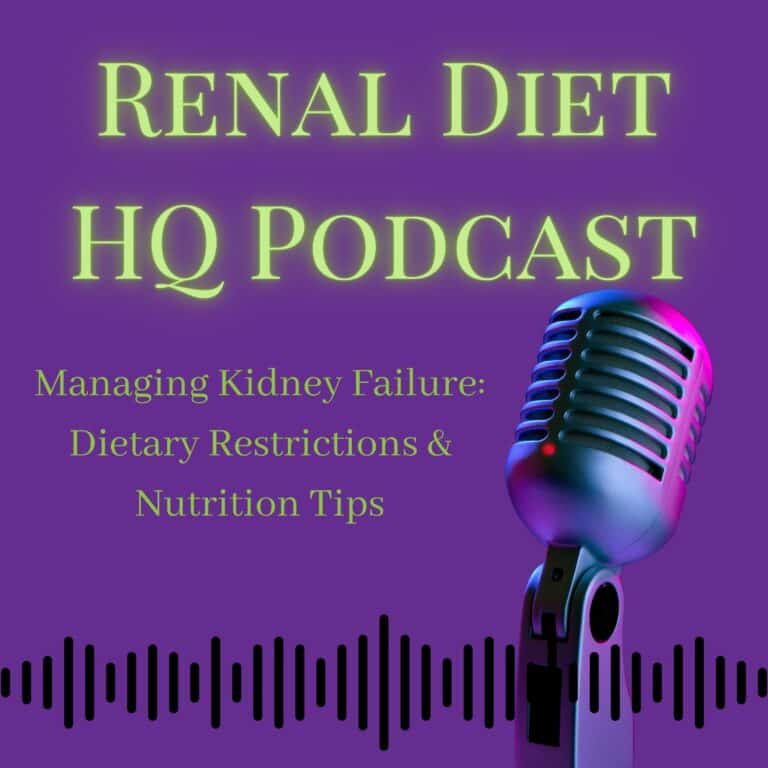Renal Vegetarian Diet: Kidney-Friendly Meals for CKD-Podcast
Podcast: Play in new window | Download

Following a vegetarian diet while managing kidney disease can feel overwhelming, but it doesn’t have to be. With the right approach, a well-balanced plant-based diet can be both enjoyable and beneficial for kidney health. This guide will provide practical tips and insights to help you navigate a renal-friendly vegetarian diet while ensuring you get the nutrients your body needs.
For More Recipes and Ideas --->> Get Your Free Meals and Recipes That Are Perfect for Pre-Dialysis Diets, Pre-Dialysis with Diabetes, or Dialysis Diets.
Why Consider a Kidney-Friendly Vegetarian Diet?
A plant-based diet offers numerous health benefits, especially for those with kidney disease. Some of the key advantages include:
- Lowering cholesterol levels: Reducing animal-based proteins can help manage cholesterol, benefiting heart and kidney health.
- Reducing inflammation: A diet rich in fruits, vegetables, and antioxidants can decrease inflammation in the body.
- Boosting overall health: Nutrient-dense foods provide essential vitamins, minerals, and fiber, all of which support kidney function and general well-being.
By increasing your intake of plant-based foods while being mindful of potassium, phosphorus, and protein, you can create a diet that supports both kidney health and overall wellness.
Key Considerations for a Renal Vegetarian Diet
To maintain a balanced kidney-friendly vegetarian diet, it’s important to focus on nutrient management and protein sources.
Protein Sources
Getting enough protein while avoiding excessive potassium and phosphorus can be challenging. Consider these kidney-friendly plant-based protein options:
- Tofu and tempeh (in moderation)
- Lentils and beans (portion-controlled)
- Quinoa and whole grains for added protein and fiber
Balancing Nutrients
While plant-based foods are packed with nutrients, it’s important to keep an eye on sodium, potassium, and phosphorus levels. Some tips include:
- Choosing low-potassium vegetables like bell peppers, cabbage, and zucchini.
- Avoiding high-phosphorus additives in processed foods.
- Using herbs and spices instead of salt to enhance flavor.
Portion Control and Smart Food Choices
Portion sizes play a crucial role in managing nutrient intake. Even healthy foods can be harmful if consumed in excess. Stick to recommended serving sizes to avoid excess potassium and phosphorus.
Tips for Success on a Renal Vegetarian Diet
Making the switch to a kidney-friendly vegetarian diet is easier with these practical tips:
Meal Planning Strategies
- Plan meals ahead using low-sodium, kidney-friendly ingredients.
- Include a variety of plant-based proteins to meet your nutritional needs.
- Experiment with kidney-friendly seasoning like garlic, lemon, and fresh herbs.
Reading Labels
- Check for hidden phosphorus and sodium additives in packaged foods.
- Opt for fresh, whole foods whenever possible.
Consulting with a Dietitian
Every person’s dietary needs are unique. A registered dietitian can help create a customized plan to ensure you get the right balance of nutrients while protecting kidney function.
Transitioning to a kidney-friendly vegetarian diet doesn’t have to be difficult. With careful planning, mindful food choices, and portion control, you can enjoy a nutrient-rich plant-based diet while managing your kidney health. Start small, make gradual changes, and consult a healthcare professional for personalized guidance. Your journey to better kidney health begins with informed choices and a balanced diet.
Looking for more guidance? Check out additional resources on kidney-friendly nutrition to support your health journey!
Be sure to subscribe to our updates and check out more CKD-safe recipes and guidance at RenalDietHQ.com.
🎧 Want more details and tips? Listen to the full podcast episode here:
Learn more about Kidney Disease and Fast Food: Safe Options You Can Enjoy-Podcast
Lean more about How Do Phosphate Binders Help Control Phosphorus Levels in CKD?-Podcast








